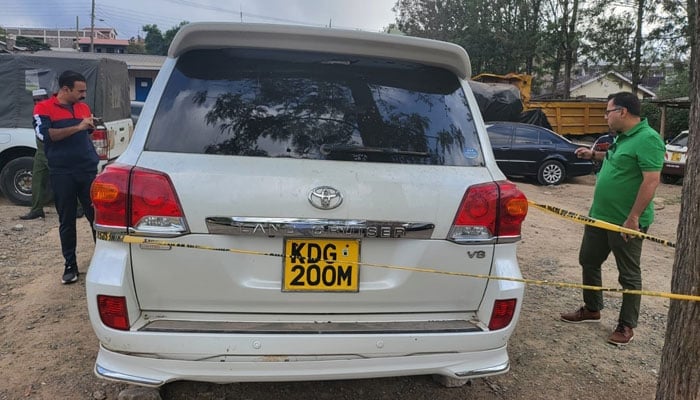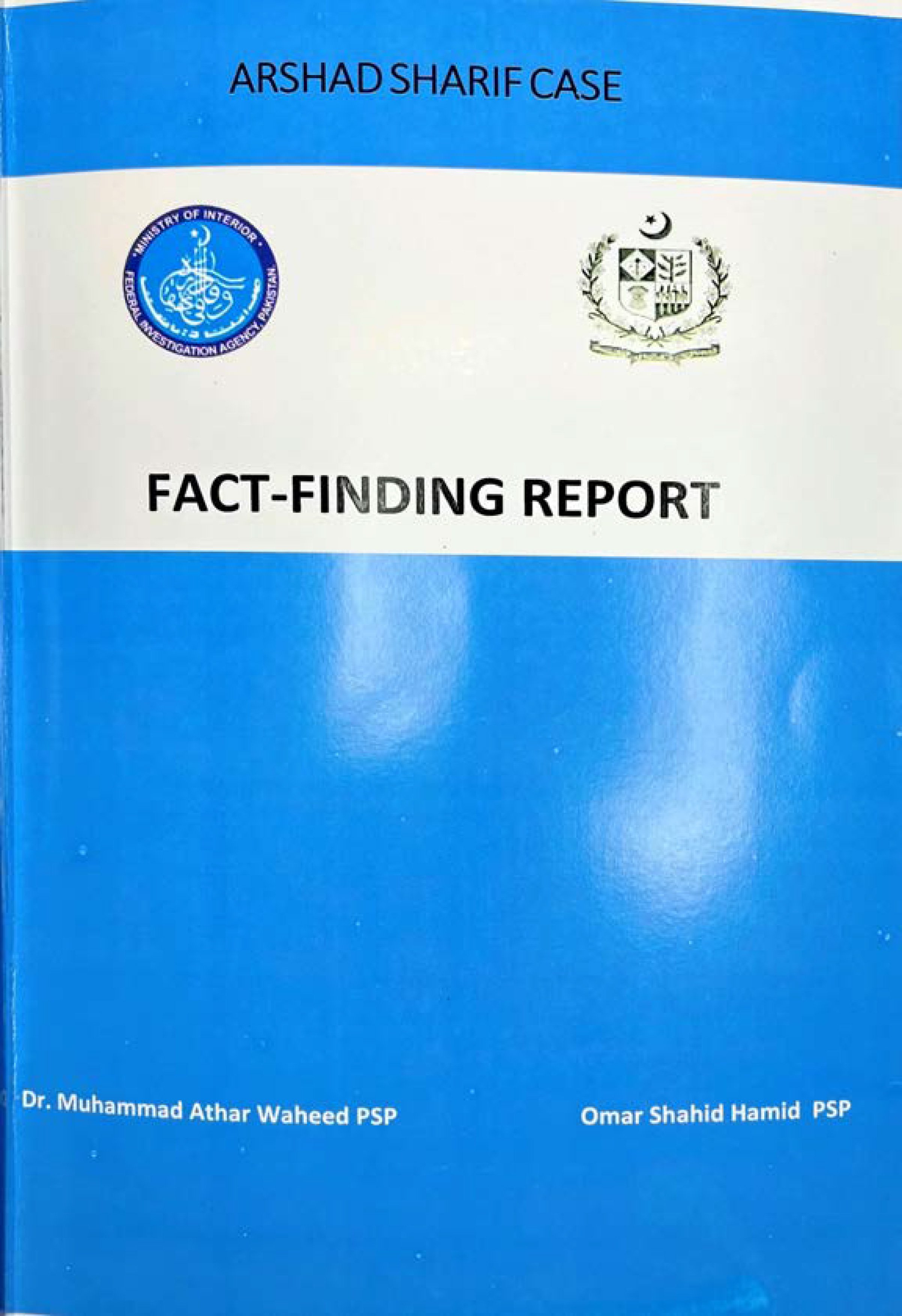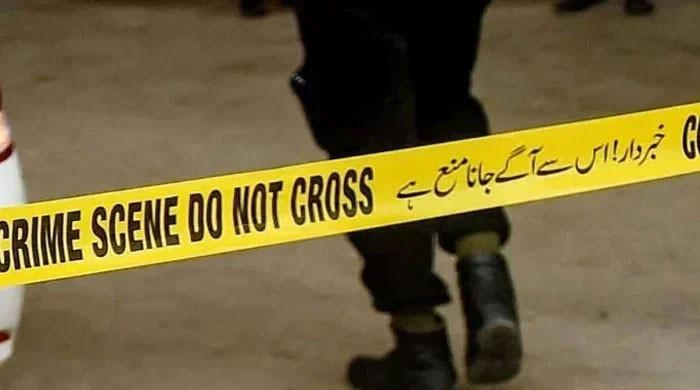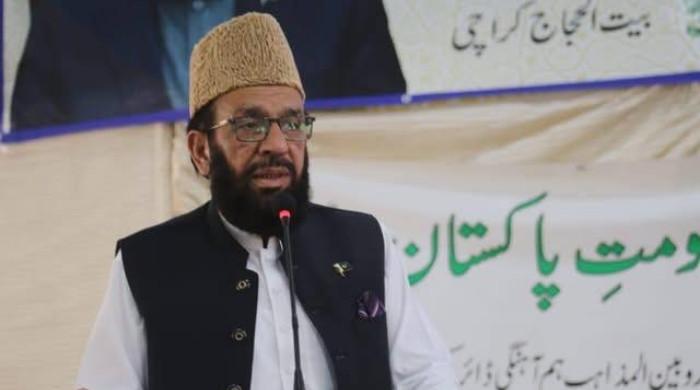Startling details in Arshad Sharif's fact-finding report
Report says Arshad Sharif's murder was a "planned" conspiracy; involvement of foreign characters key
December 07, 2022

ISLAMABAD: A fact-finding committee, established by the government, to probe and ascertain facts regarding the murder of journalist Arshad Sharif in Kenya has hinted involvement of foreign hands in the “premeditated” murder of the senior media person.
Sharif was shot dead in the African country on October 23 under mysterious circumstances by the police.
The local authorities claimed that the journalist was killed in mistaken identity after which Kenya's Independent Policing Oversight Authority (IPOA) launched an investigation, the report of which has not been released yet.
The fact-finding team manned by Federal Investigation Agency’s (FIA) Athar Waheed and Intelligence Bureau’s (IB) Omar Shahid Hamid, travelled to Kenya to collect information into the incident.
The report has been submitted to the Supreme Court during the suo motu proceedings of the case.
According to the fact-finding team's report, the statements of Khurram Ahmed — one of the key suspects in the case, who was driving Arshad Sharif when the incident took place —are full of contradictions while the Kenyan police did not provide any assistance in the investigation.
Waqar Ahmed — Khurram’s brother — who was hosting Sharif in Kenya, has also been named in the report.

The report states that Sharif was issued a UAE visa on June 20, 2022, which was valid till August 18, 2022.
The slain journalist had applied for an extension on his visa as it was expiring in 20 days; however, the visa application was rejected on October 12, 2022.
The fact-finding report said that the trajectory of the bullet that went through Arshad Sharif’s chest from the back does not match the firing pattern.
“One bullet hit him in the upper back, about 6 to 8 inches below the neck and exited from the other side (chest). It is not difficult to deduce from the wound that it was a close-range shooting, while the angle at which the bullet was fired, it should have made a hole in the car seat as well.”
According to the report, Arshad Sharif stayed in Waqar Ahmed's guest house for two months and three days.
It added that Waqar had close connections with Kenyan police and intelligence agencies, especially Kenya's National Intelligence Service (NIS).
The report quotes Waqar as saying that: "after the accident, the police handed him over Arshad Sharif's iPhone, iPad, wallet, and two USBs and he gave the iPhone and iPad to an NIS officer". A day later, the Pakistan High Commission sent an officer to collect Arshad Sharif's belongings, it must be noted.
According to the report, later Waqar called the NIS officer and told him about the development. Waqar told the investigators the NIS officer advised him against giving Sharif's belongings to the Pakistani High Commission, as per the report.
It adds that Pakistani High Commission officers found important evidence, which included two mobile phones, a computer, and a personal diary Sharif was using during his stay in Kenya.
The first three meetings with Waqar Ahmed were very helpful, the report said.
The fact-finding team also visited Sharif’s residence and found his passport and USBs, the report says.
Initially, the report added, Waqar was ready to give the CCTV footage of the residence to the Pakistani investigators; however, he later excused from doing so.
Waqar told Pakistani sleuths he did not share the footage with the local authorities as his lawyer and his wife had advised him against it.











